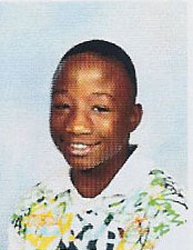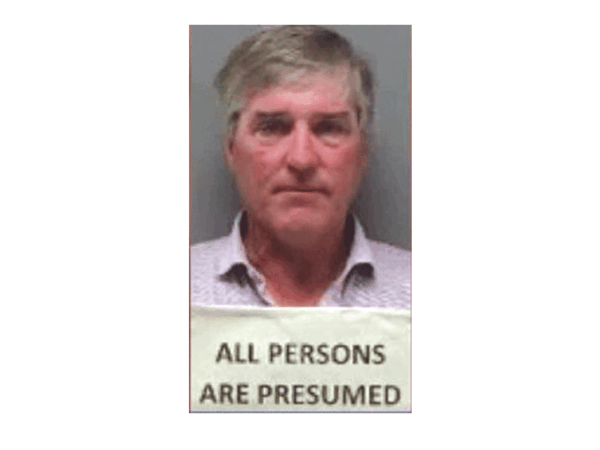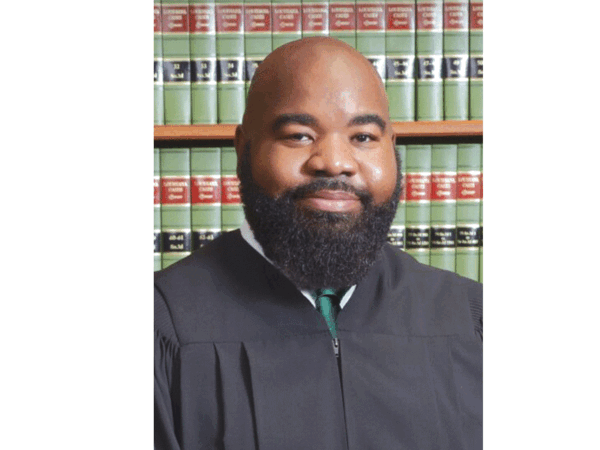In July of 2011, LaDarrius Long was a well-known 15-year-old student at Lee Jr. High School, he had dreams of being a big success in life, moving away from Monroe and living the life that success affords, but he lived in a tough part of the hood, a part that often cuts dreams short if you happen to be in the wrong place at the wrong time.
His dreams came to an abrupt end on July 2, 2011, when a disturbance broke out in the Parkview Apartment complex where he lived. At around 1:30 a.m. that night there were raised voices, shouts of Bravado, threats, and plenty of angry actions when a handgun was fired into a crowd of youth standing inside the gate of the complex. Those standing by ran for cover, scrambling to hide behind something to avoid being hit by a stray bullet.
When the smoke cleared, LaDarrius Long was a victim. He had been shot in the neck area. He died, and so did the hopes of his family that he would be able to make a success of himself despite the violence that enveloped him. Instead, all his family saw was their loved one stuffed into a black bag and driven to a funeral parlor.
Two suspects were arrested in connection with the shooting: arrested were Edzavion Miller, 19 and Anthony Ross, 18. Miller was charged with charged with conspiracy to commit murder at the time of arrest; he was also charged with attempted second-degree murder. Ross was charged with attempted second-degree murder at the time of the arrest because Long was alive but in critical condition.
It’s been six years since Long’s death; the case has resulted in a 40-year sentence for Ross and three years for Miller. It will be over 25 years before Ross will return to his family
The pain for the Long family will never go away; he will never return
The Shooter: Anthony Ross
The confessed shooter in the murder was Anthony Ross. He was jailed immediately following the shooting after witnesses gave him up to the police. The Affidavit supported the request for a warrant for Ross’ arrest spelled out the details of the charge against him. The affidavit said “On July 2, 2011, the Monroe Police Department responded to a shooting that occurred at the front gate of Parkview Apartments. Upon initial OFC arrival, one male victim was found lying on the ground in the front of the complex with a gunshot wound to the neck area. After the victim was taken to the hospital, several witnesses to the shooting were located and interviewed. During the interview process, it was discovered that a large group of subjects drove up to the front gate of Parkview Apartments in several cars. Several Black males were seen getting out of the cars and walked up on foot to the front gate of the complex yelling “U-G-S” (Underground Savages) and “South Third” these are two street gangs affiliated with the South Side of Monroe. While this was occurring, Anthony L. Ross was seen and identified as having a gun in his possession. Ross was observed aiming and firing the gun towards the victim. After the shots were fired, everyone fled the area as the victim was seen lying on the ground. CCTV Video, Cell Phone Video and witness statements along with evidence located at the scene confirmed the incident that occurred. Upon report time, the victim was taken to LSU Shreveport where he was in very critical condition on life support.”
Ross Indicted for Murder
On October 13, 2011, a Grand Jury indicted Ross for Second Degree Murder.
Several trial dates were set and reset for Ross dragging delaying a decision while he waited in jail.
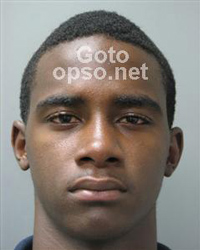
Trial reset dates were: November 21, 2011,February 13, 2012, August 27, 2012, October 25, 2012, January 8, 2013, and February 26, 2013
On April 26, 2013, Ross, representing himself, asked the court to remove his court-appointed attorney Jay Nolen because he showed no interest in his defense. He claimed that Nolen told him on April 18th that “My role in this matter is to be a negotiator for the D.A. would you like me to see how time I can get you?”. The request was denied on May 6, 2013
Another series of trial date resets delayed the case even longer: Trial reset May 9, 2013. On December 5, 2013, the case was reset to January 14, 2014, for a plea.
The late Charles Kincaid enrolled as his attorney replacing Jay Nolen and a trial date of February 3, 2014 was set with the case listed as a priority trial. However, Kincaid asked for the case to be reset to May 5, 2014.
Pleads guilty to Manslaughter
On June 12, 2014, Ross withdrew his not guilty plea and entered a plea of guilty to a reduced charge manslaughter. The Manslaughter plea deal would expose him to a possible 40 years in prison, requiring him to serve 25 or more years before being eligible for parole. The murder charge would have resulted in a life sentence with no chance of parole if had been convicted in a trial.
On October 2, 2014, Fourth District Judge Scott Leehy sentenced Ross to 40 years at hard labor with credit for time served since July 2, 2011, or 37 years in prison.
Before his sentencing, Ross wrote the following letter to the Judge:
“First I would like to address this honorable court by saying I never meant for this to happen or to cause harm to anyone. It was a fun night that turn bad, when it didn’t suppose to go wrong. I mean it happen so fast I didn’t no what to do, but I had no intention on hurting anybody. I was just trying to protect myself. I just wish I had a second chance to take that night back it wouldn’t went that far. I would have went home like I should have.
“I am just so sorry for the family of the deceased I can’t say I know there pain, but I can say I know my family pain and it shouldn’t have to be this way two family going threw hurting stages. When it should be happiness for both family so I just asks for another chance to make my life right and walk a straight line. I didn’t realize the power we possess in the choice we make.”
“I understand we were only teenagers who should’ve been at home and this situation wouldn’t never happen. I didn’t realize that one fight between two teenagers would end in death. And I would like to say that If I only had 60 seconds to choose again I wouldn’t have had the same reaction. If I’d only had time to think.
“That day forever changed my life. Today I choose a different path for my life, my family has invested in me family values and good moral principle, and I’m sincerely not a calloused and unfeeling person who could intentionally take the life of another human being. I’ve been in three years living with the regret, remorse, shame, and humiliation of this one isolated monumental incident in my life.”
On November 13, 2014, Jay Nolen once again signed on as Ross’ public defense attorney. Four months later on March 3, 2015, Ross asked the court to reconsider his sentence claiming that the sentence was excessive and should be reduced. He was granted a chance to file an appeal although the time had passed because his former attorney Charles Kincaid died. It was approved.
Two years later in 2017, a hearing was held to allow Ross to plead again and be resentenced. He agreed to plead guilty again, knowing that he could probably get the same sentence but hoping to get a sentence less than 40 years.
He told the court through an attorney “On the date alleged in the Bill of Information the defendant was with others at a party at the Civic Center. A group of people broke up from that party and started caravanning through Tanglewood and then ended up over at the project where the victim lived, and some arguments ensued. The defendant and others were standing outside the gate to Parkview and the victim, in this case, was a fifteen-year-old boy who was standing next to a dumpster. The individual, named Christopher Williams, provided the defendant with a pistol, and the defendant pointed the gun through the fence and shot, and the bullet struck the victim, in this case, killing him.”
On March 7, 2017, Judge Scott Leehy ruled that had Ross been tried for murder he would have received life in prison. The manslaughter plea, with a maximum 40-year sentence, provides him at least the opportunity for parole. He said he is convinced that a murder was committed and the sentence should serve as a deterrent to others.
What happened to Miller?
Miller told police that the shooting was gang related. He told police that he and others drove around Monroe in 12 to 15 cars. He said once they got to Parkview Apartments they began yelling “UGS” and “S3rd” as they had several cars line up behind each other. He said he was among a large group that formed at the front gate of Parkview Apartments when a gun was displayed by a friend of Miller’s in the group.
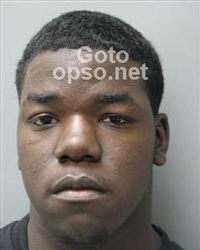
Miller said there were approximately four people inside the gate. When his friend displayed the gun, Miller said he tried to get the gun from him, but he leaned forward fired the gun in the direction of Long.
As Long’s family buried him and mourned his loss, attorneys for Miller began working the system so he could avoid spending his lives in jail.
The conspiracy charge meant that Miller was being accused of planning to murder Long and had come to a meeting of the minds with at least one other person to do the same. Even if a suspect does not actually participate in the murder, he can be found guilty of conspiracy if the crime is actually carried out.
The attempted second-degree murder charge means that Miller was accused of taking action toward the accomplishment of the murder.
Miller pleaded not guilty to all of the charges in 2011. Unable to make bail he sat in jail for three years. On July 23, 2014, Miller changed his mind and decided to take a plea deal that would set him free after just three years; some would say it was a mere slap on the wrist for his part in the alleged offense; others say it was fair since he did not actually shoot the victim.
Backed by his attorney, Trey N. McGee, Miller went into 4th District Court and withdrew his not guilty plea for conspiracy to second-degree murder and conspiracy and entered a guilty plea to a single charge conspiracy to commit manslaughter.
Long’s murder was reduced to a deal that would allow the state to clear its books and chalk up a win, and also allow Miller to walk out of jail far short of the life sentence he would have received with a murder conviction.
In court, Miller took the deal and was sentenced to ten years in prison. But it got better. Three years were sliced from his ten-year sentence when he received credit for time served. Now Miller was down to seven years. But it got better. Four more years were sliced off the sentence when they were suspended by the court. It got even better. The remaining three years of his sentence would be served on supervised probation.
It meant that after participating in the murder of Long, Miller would walk out of jail with only three years punishment.
LaDarrius Long would not get a second chance.

